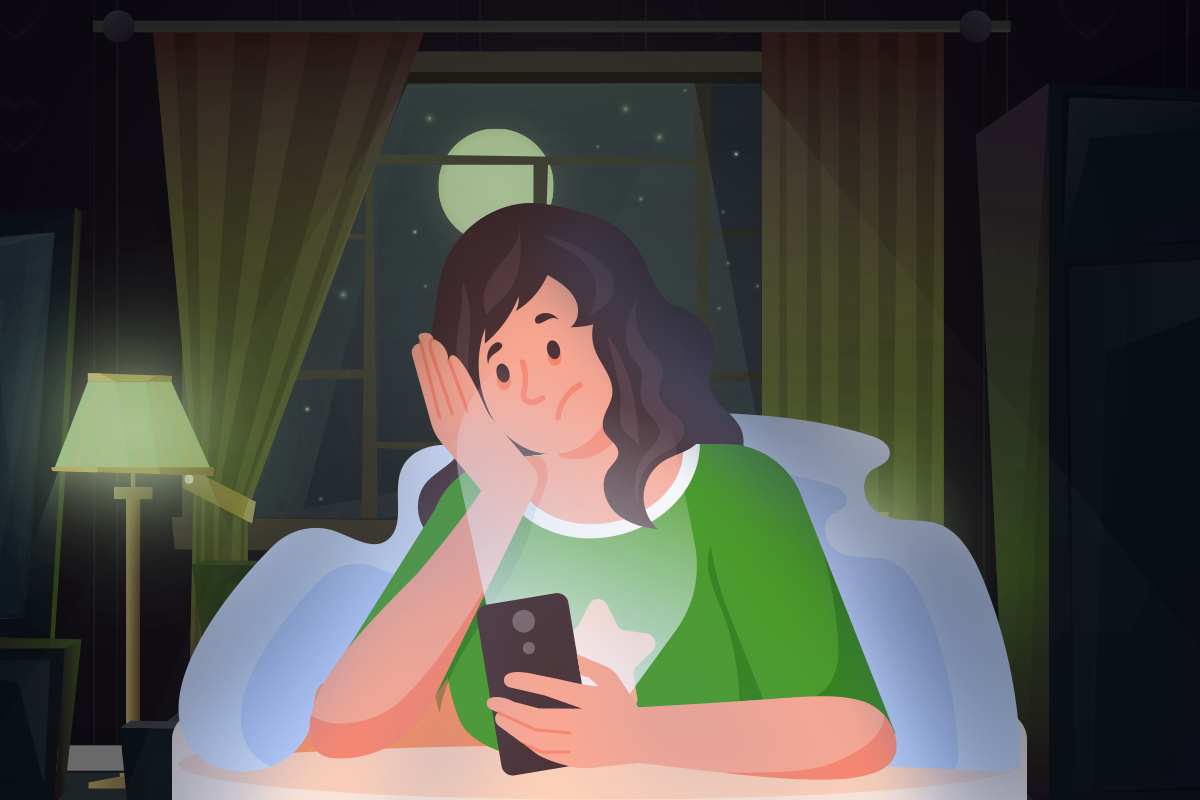7 Ways You Can Overcome FOMO

7 Ways You Can Overcome FOMO
Table of Contents
ToggleWe all know the feeling of endlessly scrolling through Instagram or Facebook, and seeing countless stories and posts. You probably see a lot of weddings (since it’s also wedding season now), promotions at work, someone just finishing their second postgraduate degree, birthday parties, or a picture of the sunset on the beach. As you scroll, you get that all too familiar feeling of the fear of missing out or FOMO as it’s colloquially called. You feel as if no matter what you do, you can’t keep up with everyone else. There’s always that gathering you missed or that party you weren’t invited to. You feel an uncomfortable mix of envy, low self-esteem, loneliness and exclusion.
Fear of missing out (FOMO) can be defined as pervasive anxiety that one feels because other people might be having rewarding experiences, that they are absent from. It also involves a desire to be constantly connected with what other individuals are doing, which some people claim that it leads to compulsive behavior (e.g., constantly checking social media to see what people are up to).
Some researchers believe that this is coming from the inborn desire of humans for social connection and belonging. It’s only natural for humans to be pursuing interpersonal relationships as well as a sense of belonging to something bigger than themselves. So, when an individual feels that they lack such connections, it might result in emotional and physical distress and even impact overall functioning and well-being.
This increasingly common phenomenon, first used in marketing, has been mentioned more and more in scholarly conversations due to its potent effect on the mental health of those experiencing it.
FOMO is associated with:
- Reduced life satisfaction.
- Lower mood.
- Intensive social media usage (FOMO triggers the excessive use of social media, which perpetuates the vicious cycle as FOMO is reinforced by increased exposure to social media).
- Heightened levels of anxiety.
- Constant need for rewarding experiences, which might lead to engaging in risky activities to socialize.
- Putting unreasonable expectations on oneself, which negatively impacts one’s self-esteem.
- Low self-esteem and sleep problems in teenagers.
How to overcome FOMO:
- Unplug & unwind:
Set a daily limit for the amount of screen time you are allowed to have. You can use the help of your phone’s settings or download an app to help you by locking the apps after 2 hours of use, for instance. It might also be better if you unfollow accounts that trigger such thoughts or feelings in the first place. Make your news feed a place where you can relax instead of tensing up even more.
- Be mindful of what you do with your time:
Schedule events that are important to you. This might be anything you enjoy such as going to a gathering with close friends, having some alone time to read, engaging in a workout, or whatever hobby you find joy in. Plan out your days according to your priorities instead of wasting precious time worrying about what other people are doing.
- Live your life mindfully:
Whatever you’re doing, try to do it mindfully. If you’re in a workout, don’t think about what other people have planned or what you’re missing out on. Instead, remember why you’re exercising, try to pay attention to your body and breathe.
- Start saying “No”:
Nowadays, people brag about not having one minute of free time. However, that might not be the healthiest lifestyle for everybody. If you’re feeling like you need some time to yourself to recharge, relax or reflect, say no to that event or don’t take that phone call. This is one of the most important ways of self-care.
- Seek out real connections:
The feeling of loneliness might be a signal that you are in need of more meaningful and genuine connections with people and to enhance your sense of belonging. Start spending more time with family and friends in real life, try to be mindfully present and notice the difference.
- Journaling:
Start journaling to have a better understanding of what triggers your FOMO and why. If you’re feeling that you put yourself in constant competition with someone on social media, consider figuring out why you are feeling this way. What is it that you want to strive for? What does that person signify to you? What is it that you think you lack? What is it that you value so much? Also, give gratitude journaling a shot. Being more aware of what you have and what you’re truly grateful for will enhance your overall mood and life satisfaction.
- Therapy:
If you feel overwhelmed by feelings of sadness, loneliness and exclusion and it’s affecting various aspects of your life, seek therapy. While FOMO is not a diagnosis that necessarily requires treatment, it might lead to more complex feelings and conditions that might be difficult for someone to handle alone.
References:
- Przybylski, A. K., Murayama, K., DeHaan, C. R., & Gladwell, V. (2013). Motivational, emotional, and behavioral correlates of fear of missing out. Computers in human behavior, 29(4), 1841-1848.
- Gupta, M., & Sharma, A. (2021). Fear of missing out: A brief overview of origin, theoretical underpinnings and relationship with mental health. World Journal of Clinical Cases, 9(19), 4881.
- Oberst, U., Wegmann, E., Stodt, B., Brand, M., & Chamarro, A. (2017). Negative consequences from heavy social networking in adolescents: The mediating role of fear of missing out. Journal of adolescence, 55, 51-60.
- Cacioppo S, Capitanio JP, Cacioppo JT. Toward a neurology of loneliness. Psychol Bull. 2014;140(6):1464-504. doi:10.1037/a003761
- Cunha LF, Pellanda LC, Reppold CT. Positive Psychology and Gratitude Interventions: A Randomized Clinical Trial. Front Psychol. 2019;10:584. doi:10.3389/fpsyg.2019.00584
- Zimmerman, L. (n.d.). Do you fear missing out? American Psychological Association. Retrieved June 13, 2022, from https://www.apa.org/gradpsych/2016/01/missing-out
- Barry, C. T., & Wong, M. Y. (2020). Fear of missing out (FoMO): A generational phenomenon or an individual difference? Journal of Social and Personal Relationships, 37(12), 2952–2966. https://doi.org/10.1177/0265407520945394
- Gupta M, et al. (2021). Fear of missing out: A brief overview of origin, theoretical underpinnings and relationship with mental health.
ncbi.nlm.nih.gov/pmc/articles/PMC8283615/ - The psychology of fomo: Fear of missing out. King University Online. (2019). Retrieved June 12, 2022, from https://online.king.edu/news/psychology-of-fomo/
- Fioravanti, G., Casale, S., Benucci, S. B., Prostamo, A., Falone, A., Ricca, V., & Rotella, F. (2021). Fear of missing out and social networking sites use and abuse: A meta-analysis. Computers in Human Behavior, 122, 106839.






